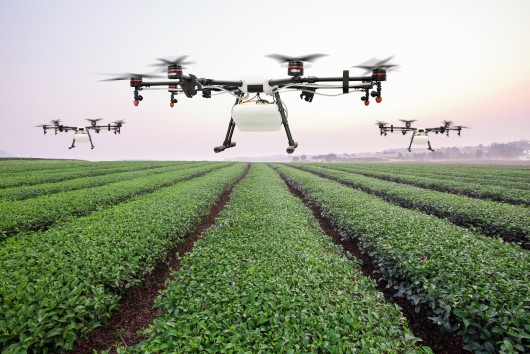Science in the future of agriculture: Can innovation double food production - and improve sustainability?
05-11-2018

The European farming sector is facing a number of challenges – producing more and better food from shrinking arable land for a growing population, while preserving the environment and ensuring good living standards for farmers. Many suggest innovation, including precision farming and advanced plant breeding techniques, can help tackle these issues. Others call for an agricultural turnaround towards organic agriculture.
Boosting knowledge and innovation in agriculture, forestry and rural areas is part of the EU’s priorities enshrined in its rural development programmes. It is argued that research and innovation will lead to increased production, whilst reducing environmental, energy and the climate footprint of food production.
The technological revolution in farming is led by an ever better understanding of the biology of plants and advances in robotics and sensing technologies. Devices to monitor vegetable growth, as well as robotic pickers, are currently being tested. While some of these technologies are already available, others are still at the research stage.
The Food and Agriculture Organization of the United Nations estimates that 20–40% of global crop yields are lost each year to pests and diseases, despite the application of around two-million tonnes of pesticide. Through intelligent digital devices with highly advanced image and sensor technology, such as robots and drones, monitoring and maintenance of soil quality can be improved, helping to eliminate pests and diseases while further reducing the need for agrichemicals.
Questions will include:
- What role for EU institutions in managing the regulatory environment?
- How can food quality and consumers benefit from advanced breeding techniques? Will they address societal nutrition demands?
- Can innovation also help resolve environmental and international development challenges?
- Can intelligent robots help change the economic model of farming so it becomes feasible to be a small producer again?
Supported by:
Location
Euractiv Network Office
Boulevard Charlemagne 1, 1041 Brussels
Google Maps >>
Panellists
Barend Verachtert, Head of Unit, Agri-Food Chain, DG Research and Innovation, European Commission
Bérénice Dupeux, Policy Officer for Agriculture, European Environmental Bureau (EEB)
Jannes Maes, President, European Council of Young Farmers
Piet van der Meer, Professor, Free University of Brussels, Ghent University
Volker Koch-Achelpöhler, Head of EU Liaison Office, Bayer AG
Moderator
Sarantis Michalopoulos, Editor, EURACTIV
Schedule
17:00 – 17:30 Registration
17:30 – 18:00 Panel Statements
18:00 – 19:00 Open Debate and Q&A
19:00 – 20:00 Networking cocktail
Contact
Teresa Dominguez
teresa.dominguez@euractiv.com
+32 (0) 2 788 36 93





